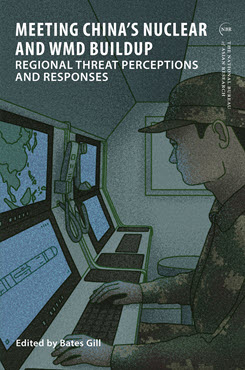Essay in NBR Special Report 109
India’s Changing Attitude toward Nuclear Expansion
This essay examines the development of China’s nuclear forces and assesses the impact on India.
EXECUTIVE SUMMARY
MAIN ARGUMENT
MAIN ARGUMENT
India had traditionally not been overly concerned about China’s nuclear capability, despite China’s clear nuclear superiority. But the expansion and modernization of China’s nuclear arsenal are likely to lead to a change in Indian attitudes, especially given the contentious nature of relations between the two countries. This will not be ameliorated even if China were to maintain its official no-first-use doctrine. India’s concerns will likely grow if China seeks nuclear parity with the U.S., which would result in a massive nuclear disparity between India and China. Even though India will not seek to match China’s nuclear expansion, it will accelerate the pace of development and deployment of a more effective deterrent capability.
POLICY IMPLICATIONS
- India’s rather relaxed approach to China’s nuclear capabilities could come under pressure and compel India to respond in qualitative terms and revise its doctrine.
- China’s possible strategic assistance to Pakistan in the form of sea-based deterrent forces or multiple independently targetable re-entry vehicle capabilities for Islamabad’s intermediate-range ballistic missiles could make India’s deterrent calculations in southern Asia considerably more complicated.
- If China’s nuclear expansion results in a Sino-U.S. arms race, this could have unpredictable consequences for the Indo-Pacific, including the potential for additional nuclear proliferation. Even U.S. allies such as Japan and South Korea might contemplate the development of nuclear weapons of their own.
Rajeswari Pillai Rajagopalan is the Director of the Centre for Security, Strategy and Technology at the Observer Research Foundation (ORF) in New Delhi.



